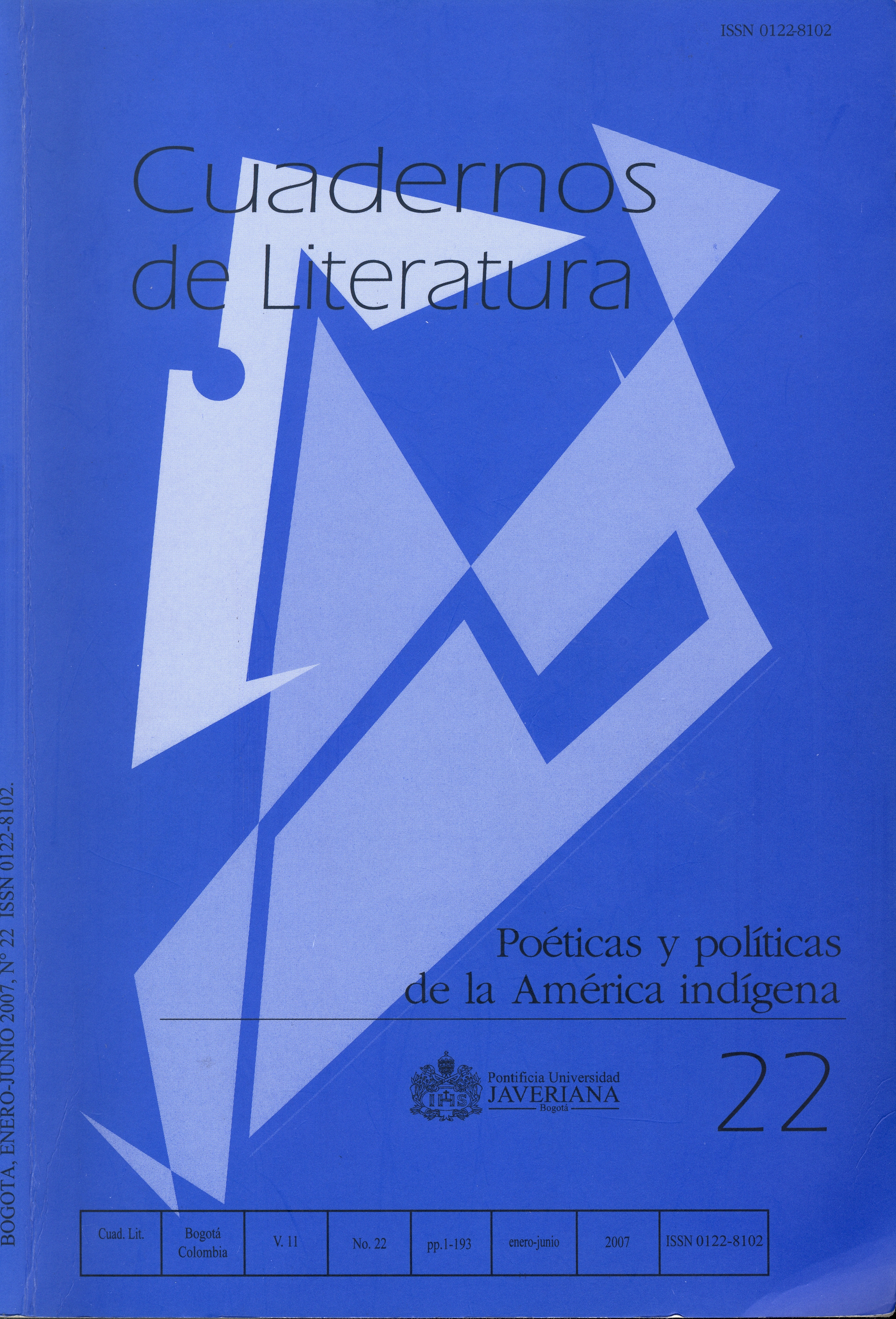Abstract
Este ensayo examina la emergencia de poetisas mayas en México y Guatemala como parte de un movimiento indígena ás amplio que clama su derecho a la diferencia cultural. Arguyo que aunque la mujer maya está inmersa en los discursos del nacionalismo oficial, nacionalismos étnicos y feminismos occidentales, crea sus propias subjetividades multidimensionales, vía la poesía. El análisis se enfoca en la resignificación de símbolos culturales tradicionales y la negociación de cultura, poder y género. Tomando ejemplos de tres lugares regionales, se exploran las diferentes maneras como las poetisas mayas contemporáneas reescriben el pasado y se reinventan por medio de la apropiación de formas literarias convencionales. El ensayo explora el trabajo de Briceida Cuevas Cob, X'vet Ruperta Bautista Vázquez, Calixta Gabriel Xiquín y Maya Cú. La discución está marcada por preguntas trascendentes sobre el lenguaje, la producción de "otros saberes" y la feminización de la etniedad.Cuadernos de Literatura is registered under a Creative Commons Attribution 4.0 International Public License. Thus, this work may be reproduced, distributed, and publicly shared in digital format, as long as the names of the authors and Pontificia Universidad Javeriana are acknowledged. Others are allowed to quote, adapt, transform, auto-archive, republish, and create based on this material, for any purpose (even commercial ones), provided the authorship is duly acknowledged, a link to the original work is provided, and it is specified if changes have been made. Pontificia Universidad Javeriana does not hold the rights of published works and the authors are solely responsible for the contents of their works; they keep the moral, intellectual, privacy, and publicity rights.
Approving the intervention of the work (review, copy-editing, translation, layout) and the following outreach, are granted through an use license and not through an assignment of rights. This means the journal and Pontificia Universidad Javeriana cannot be held responsible for any ethical malpractice by the authors. As a consequence of the protection granted by the use license, the journal is not required to publish recantations or modify information already published, unless the errata stems from the editorial management process. Publishing contents in this journal does not generate royalties for contributors.


